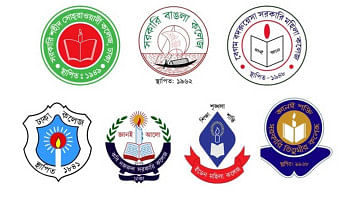Why did Obama receive the Nobel Peace Prize?
PRESIDENT Barack Obama won the Nobel Peace Prize in a stunning decision that honoured the first-year of his tenure as US president.
The bestowal of one of the world's top accolades on Obama was greeted with gasps from the audience at the announcement ceremony in Oslo.
The president, who will travel to Oslo to receive the award on December 10, plans to donate the prize money of 10 million Swedish kronas -- roughly $1.4 million -- to charity, the White House said.
The Norwegian Nobel Committee praised Obama for "his extraordinary efforts to strengthen international diplomacy and cooperation between peoples," citing his push for nuclear disarmament and his outreach to the Muslim world.
"Very rarely has a person to the same extent as Obama captured the world's attention and given its people hope for a better future," the Nobel committee said in its citation.
Describing himself as surprised and deeply humbled, Obama said he would accept the award as a "call to action" to confront the global challenges of the 21st century
The awarding of the prize to Obama won praise from statesmen such as Nelson Mandela, Mikhail Gorbachev and Jimmy Carter, and all Nobel laureates including Prof Yunus. UN Secretary General Ban Ki-moon said: "His commitment to work through the United Nations gives the world's people fresh hope and fresh prospects."
President Obama brought fresh air into American foreign policy on the basis of 3 Ds -- defence, dialogue and development.
He offered the olive branch to the Muslims and, in his Cairo speech on June 4, said: "America is not and never will be at war with Islam."
On January 27, the president, in his first interview with Dubai-based Arab TV Al Arabiya, said to the Muslim world: "The Americans are not your enemy." He offered a dialogue with Iran and what he depicted as a new readiness to listen rather than dictate.Under his direction, US started face-to-face dialogue on nuclear proliferation with Iran in Geneva on October 1 after a lapse of 40 years.
Matching words with deeds, the president, within days, outlined the new US priorities by naming three envoys -- former senator George Mitchell for the Middle East; senior diplomat Richard Holbrooke for Afghanistan and Pakistan and Todd Stern, a former adviser of President Clinton to deal with climate change.
He repaired US-Russia relations by scrapping the plan to install a missile shield in the Czech Republic and Poland, which was vehemently opposed by Russia.
The president initiated direct engagement with Myanmar, reversing the long-standing policy of isolating Myanmar. In New York, the representatives of both countries met to discuss how to resolve the stand-off between the two countries. The opposition Burmese leader Aung San Suu Kyi welcomed the policy-shift.
Obama has advocated the elimination of nuclear weapons across the world and chaired a UN Security Council meeting on September 24, which adopted a unanimous resolution to this effect. The resolution also called for the creation of a treaty that would ban the production of fissile material made specifically for nuclear weapons, and urged "all states to refrain from conducting a nuclear test explosion and to join the Comprehensive Test Ban Treaty (CTBT), thereby bringing the treaty into force."
All these steps by Obama changed the global environment for reconciliation and peace and were unthinkable during the Bush administration.
The award was attacked in some quarters as hasty and undeserved. Chairman Thorbjoern Jagland rejected suggestions from journalists that Obama was getting the prize too early. "We hope this can contribute a little bit to enhance what he is trying to do," he told a news conference.
Critics miss the point that long-standing disputes do not admit early resolution. The most significant fact is the beginning of process towards resolution, and the president has created the right environment for settlement of inter-states disputes.
It is noted that Shimon Peres, Yitzhak Rabin and Yasser Arafat received the Nobel Peace Prize in 1994, but the Israeli-Palestinian conflict remains unresolved even today. They were awarded for the commencement of a peace process of a very intractable dispute.
President Obama has shifted America's foreign policy from hard power (military power) to soft power (diplomacy, aid in social work, health and education), winning hearts and minds of people across the world.
President Obama is perceived as an inspirational figure across the world. He deserves the Nobel Peace Prize because he changed the direction of US foreign policy towards cooperation and inclusiveness in place of confrontation with adversaries.

 For all latest news, follow The Daily Star's Google News channel.
For all latest news, follow The Daily Star's Google News channel. 



Comments